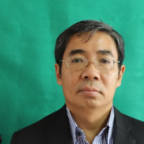The urgency for climate change risk management and reduction to become “part and parcel” of urban planning in the region has been recognized in recent report by the UN and NGO related to climate change. APN, as an international research organisation and networking, has contributed many works related to climate change. Climate change adaptation has become major issue in the SEA. APN SEA-SRC through its meetings concluded that climate change impacts in urban areas are of its concerns. Previous APN project, addressing mega cities at risks, revealed common problem in urban areas in the SEA. Appropriate urban planning as an adaptation action to climate change was then identified as a common interest. Coastal areas and big cities in the SEA countries have been experiencing impacts of climate change and becoming very vulnerable. Water-related disasters such as floods, inundation, and droughts are more frequent as the result of rainfall change. Local governments of big cities in SEA realized the importance of climate change issues, but related programs were not sufficient. Big and growing cities in SEA need spatial planning to adapt climate change. Some common needs in SEA included how to develop modules for training, and who will be the target group and participant of the training. It is expected that the project should have the scope to promote educational activities in urban planning, research in climate change adaptation strategies in urban planning, and community service to adapt climate change in urban areas. We propose to organize a series of one week summer school (training of the urban planners or training of trainers) on building capacity for urban climate change adaptation in South-East Asia (SEA) region. Each training will compose of 3 components; the first module is the review of interaction between climate change and SEA region, from the science perspective, to the development of policy options for responses to climate variability and impacts. The second component is the field visit to coastal cities to observe impacts of extreme events and adaptive measures. The third component is the hands-on experiences on the model output or lesson learned of urban planning to solve the real problems and needs in climate change adaptation, based on the output of SEA regional climate downscaling exercise for future climate projection and implementations for short, medium and long term adaptive capacity in SEA cities.
Project • CBA2015-03NMY-Adiningsih, CBA2016-01CMY-Boonjawat



